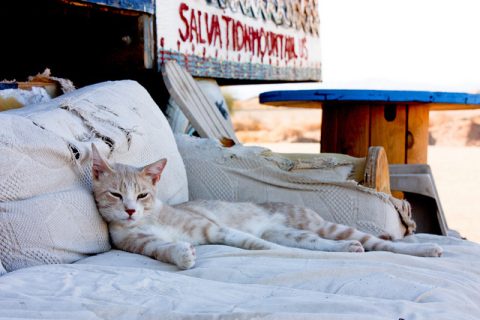The clear plastic bag is an omnipresent component of this story. It seems to say something horrid and ineffable. Where did the idea for the plastic bag over the girl’s head come from?
Faceless, nameless women on the news and then reproduced again and again in literature, comics, television, film, etc. Something disposable. Something replaceable. Something you don’t think about twice. Using a woman’s body as a narrative device rather than making her a character in the story. It’s a shortcut and quick way for someone to spit out another procedural, another puzzle for your detective of the week to solve. You show enough bodies and they all end up blending together, erasing one another, becoming an anonymous whole rather than a group of distinct individuals.
The way Lynch and Frost kept the idea of Laura Palmer alive through Twin Peaks and Fire Walk with Me was a big part of this story, too—they never let you forget she was a person, one with deep connections with her family, her friends, and the community itself. Laura Palmer’s story is integral to Twin Peaks, not just how she died, but who she was and what she represented to everyone else. She reveals the cracks and fissures in this town when she is removed. Her disappearance carries weight.
We don’t often afford victims that much space, even when they aren’t fictional. The narratives we tell one another blend together until all that’s left are bodies without names, without faces. There is a count of victims, maybe a few paragraphs describing the killer. And that’s all.
This is where the plastic bag originates. You can find one anywhere.
Have you ever had a plastic bag on your head? Was there any personal experience with suffocation, asphyxiation, or loss of breath that inspired the idea?
Nope.
Have you ever been to the roadhouse in this story or some variation of it? What about the roadhouse makes someone breathless, or is the damage done well before you enter the roadhouse? Can you tell us any insane roadhouse tales?
I’ve been to a lot of dive bars in small towns you’ve never heard of and that I’ll never return to again. The roadhouse in the story is an amalgamation of those places and the one in Twin Peaks, but Laura Palmer has returned to claim it as her own, to exert some control over her final resting place. It is her domain. It’s a lighthouse in the dark, a waiting place. A kinder, gentler purgatory. This is where the nameless can congregate as they’re killed off in our stories, cast aside after the first couple pages or discovered just before commercial break, which will soon be a relic of the past. Right before you click “Yes” to continue watching.
Can you discuss Laura Palmer? Is she some dichotomy of Twin Peaks’ actress and the British band Bastille?
No, she’s pretty much just the fictional Laura Palmer from Lynch’s work (Twin Peaks and Fire Walk with Me). She’s a figurehead the rest of these fictional women are drawn toward.
Maybe a little Stevie Nicks thrown in there, too, because Stevie Nicks is the be-all, end-all of Americana for me. If there was an alternate title for the story, it would be “Stevie Nicks’ Bar and Grill,” but she is alive and kicking and should be for a very long time. All hail the great white witch of America, may she rule forever and ever covered in doves and lace, amen.
You reiterate that the bag is “clear” a couple times. Is the plastic bag “clear” to make it possible for the girl to see or does it go infinitely deeper beyond the lake, surface, and air? What does the clear plastic bag represent?
I am not really big on symbolism or one-to-one correlation. A clear plastic grocery bag is something innocuous and everyday, something that can end a life as easy as a brick to the head or a fall down the stairs. There are so many quiet ways people die or disappear. A link to the mundane is important in a story like this, one invested with a lot of wonky dream logic and a cyclical structure. You spend quite a bit of time walking in circles. Women are often depicted as anonymous, faceless victims and that’s where a lot of the horror in this story originates for me, I guess. This is what she has been reduced to—something disposable, common, and unremarkable.
Laura Palmer wants to reclaim her if she can. She too was found wrapped in clear plastic on the shore.



 The core workshop of SmokeLong Fitness is all in writing, so you can take part from anywhere at anytime. We are excited about creating a supportive, consistent and structured environment for flash writers to work on their craft in a community. We are thrilled and proud to say that our workshop participants have won, placed, or been listed in every major flash competition. Community works.
The core workshop of SmokeLong Fitness is all in writing, so you can take part from anywhere at anytime. We are excited about creating a supportive, consistent and structured environment for flash writers to work on their craft in a community. We are thrilled and proud to say that our workshop participants have won, placed, or been listed in every major flash competition. Community works.